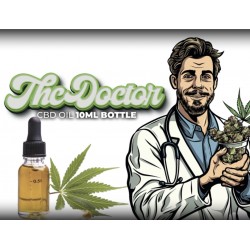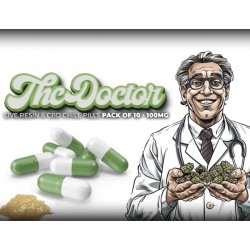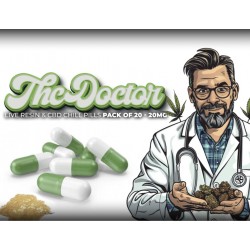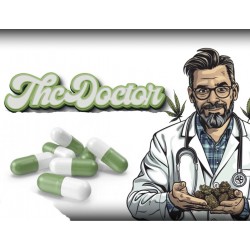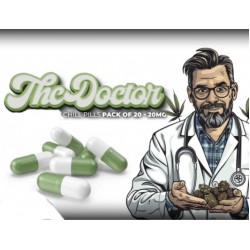CBD/ THC
Here in this section you will find an array of our products that we stock that contain both CBD oil and THC. We offer pure CBD oil for medical conditions as well as general well being, along with CBD mixed will THC that will work along side each other to not only assist with general everyday well being but to also ease you through the day in that THC way, we offer milder doses up to stronger, hard hitting pain relief amounts.
But what exactly is CBD oil we hear you asking yourselves? Let us explain!
What is CBD oil?
CBD is one of many compounds, known as cannabinoids, in the cannabis plant. Researchers have been looking at the possible therapeutic uses of CBD. CBD oils are oils that contain concentrations of CBD. The concentrations and the uses of these oils vary.
Until recently, the best-known compound in cannabis was delta-9 tetrahydrocannabinol (THC). This is the most active constituent of marijuana. Marijuana contains both THC and CBD, and these compounds have different effects.
THC creates a mind-altering "high" when a person smokes it or uses it in cooking. This is because THC breaks down when we apply heat and introduce it into the body.
CBD is different. Unlike THC, it is not psychoactive. This means that CBD does not change a person's state of mind when they use it.
However, CBD does appear to produce significant changes in the body, and some research suggests that it has medical benefits.
CBD comes from the cannabis plant. People refer to cannabis plants as either hemp or marijuana, depending on their level of THC. However, hemp farmers have rarely modified the plant. These hemp plants are used to create CBD oil.
How CBD works
All cannabinoids, including CBD, produce effects in the body by attaching to certain receptors.
The human body produces certain cannabinoids on its own. It also has two receptors for cannabinoids, called the CB1 receptors and CB2 receptors.
CB1 receptors are present throughout the body, but many are in the brain.
The CB1 receptors in the brain deal with coordination and movement, pain, emotions, and mood, thinking, appetite, and memories, and other functions. THC attaches to these receptors.
CB2 receptors are more common in the immune system. They affect inflammation and pain.
Researchers once believed that CBD attached to these CB2 receptors, but it now appears that CBD does not attach directly to either receptor.
Instead, it seems to direct the body to use more of its own cannabinoids.
Benefits
CBD may benefit a person's health in a variety of ways, including:
Natural pain relief and anti-inflammatory properties,
Quitting smoking and drug withdrawals, includeing anxiety, mood-related symptoms, pain, and insomnia.
Epilepsy and other neurological symptoms and disorders,
Fighting Cancer,
Anxiety disorders,
Type 1 diabetes,
Acne,
Alzheimers disease
How to use
CBD is just one of may compounds in marijuana, and it is not psychoactive. Smoking cannabis is not the same as using CBD oil.
Using CBD oil is not the same as using or smoking whole cannabis.
A person can use CBD oil in different ways to relieve various symptoms.
CBD-based products come in many forms. Some can be mixed into different foods or drinks or taken with a pipette or dropper.
Others are available in capsules or as a thick paste to be massaged into the skin.
Recommended dosages vary between individuals, and depend on factors such as body weight, the concentration of the product, and the health issue. Some people consider taking CBD oil to help treat:
Chronic pain, Epilepsy, Parkinson’s disease, Huntington’s disease, Sleep disorder.

